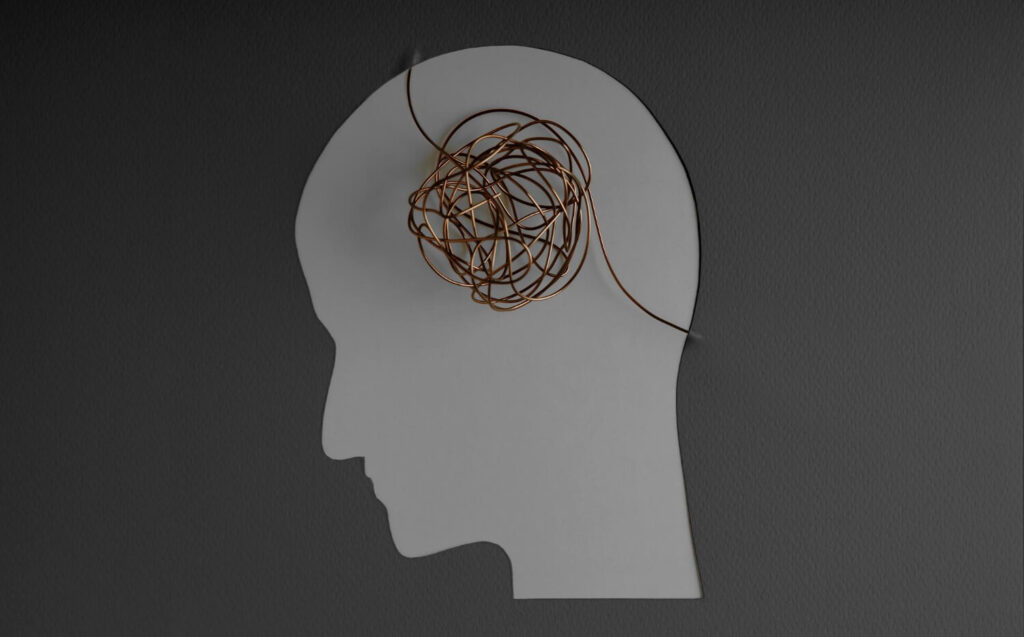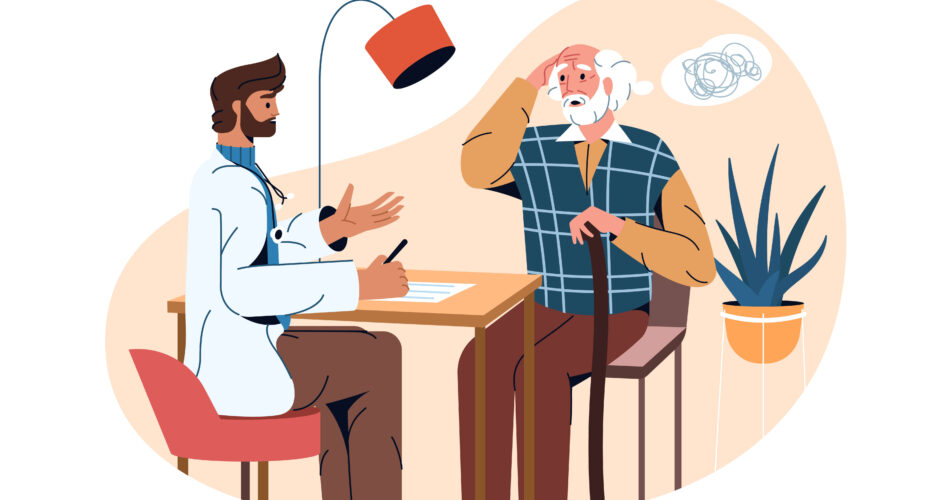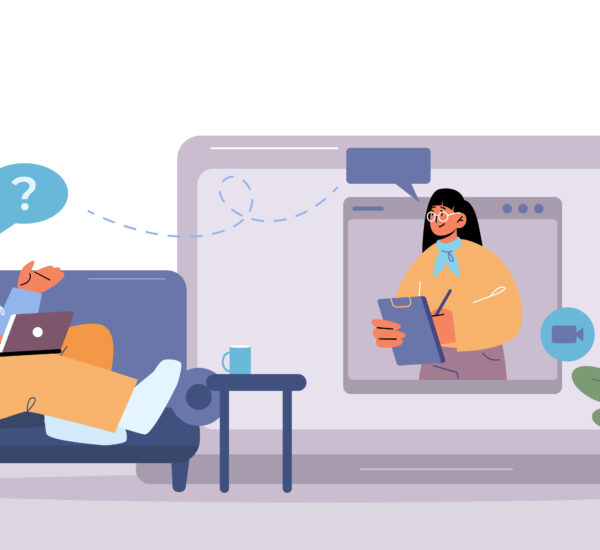In the realm of mental health, several conditions can often be confused with one another due to overlapping symptoms. Delirium vs dementia vs depression are three potential topics that are commonly misunderstood and misdiagnosed. Thus, showing the importance of seeking help from a health expert.
It is crucial to differentiate between these conditions to provide timely and appropriate help. In this article, we will provide a comprehensive overview of these mental illnesses. Let’s delve into this complex web of mental health disorders.
Understanding the Basics

When it comes to understanding the complexities of the human mind, it is important to understand the intricacies that affect a person’s mental state. Most patients of today suffer from the illness of the mind, but due to lack of knowledge, they tend to disregard them. Unfortunately, ignoring alarming signs can lead to severe outcomes, affecting their daily lives.
That’s why it’s best to be one step ahead by understanding the key differences of each mental illness. Let’s discuss more about delirium vs dementia vs depression below!
Defining Delirium
Delirium, referred to as an acute confusional state, is a condition characterized by a rapid onset of confusion and fluctuating mental states. It can be a distressing experience for the individual and their loved ones. This mental disorder is usually triggered by causes of delirium, like medical conditions, medication side effects, or drug and alcohol withdrawal.
Aside from that, it is vital to note that this condition is more prevalent among older adults, especially those who are hospitalized or undergoing surgical procedures. The sudden signs of delirium can be alarming, and healthcare professionals should identify and address them promptly.
Common types of delirium may involve the following:
- hypoactive delirium
- hyperactive delirium
- mixed delirium
Unraveling Dementia
On the other hand, dementia is a general term for a decline in cognitive abilities that affects daily life. It is a condition that can impact the lives of individuals and their families. Aspects such as memory loss, impaired judgment, difficulties with communication and language, sudden changes in mood and behavior, and challenges in performing familiar tasks are some of the typical symptoms of dementia.
While onset dementia cases are more prevalent among older people, it is important to note that it can also affect younger individuals in rare cases. The progressive nature of dementia requires specialized care and support to ensure the well-being of those affected.
Common types of dementia involve:
- Alzheimer’s disease
- vascular dementia
- Lewy body dementia
- frontotemporal dementia
- Huntington’s disease
Understanding Depression
Depression is a mood disorder that goes beyond the occasional feeling of sadness or a temporary rough patch in life. It is a complex condition that affects how a person feels, thinks, and handles daily activities. Most patients with depression experience mood changes, specifically changing to sadness and loss of drive to do any activity. Due to such changes, in visual perception, family members might perceive the patient to have undergone personality changes.
It is important to recognize that depression is not a sign of weakness or a character flaw, but rather a medical condition that requires understanding, support, and appropriate treatment. When a person is diagnosed with this condition, urgent evaluation from a medical professional is a must to prevent consequences in the future. With the right interventions, individuals with depression can experience significant improvement in their quality of life.
Common types of depression consist of the following:
- major depression
- bipolar disorder
- postpartum depression
Spotting the Differences: Delirium vs Dementia vs Depression
Delirium Symptoms

When it comes to accurate diagnosis of delirium, it’s best to analyze the symptoms first. These common symptoms are vital, which the experts in the field rely on for proper diagnosis.
Impaired Attention Span
When a person experiences delirium, their attention span may become significantly impaired. They may struggle to focus on tasks or conversations for extended periods. In addition to attention difficulties, individuals with delirium may also experience disruptions in their thought processes. They may have trouble organizing their thoughts or connecting ideas, leading to confusion and disorientation.
Disrupted Sleeping Pattern
Another symptom is the noticeable disturbances in the sleep-wake cycle. People with delirium may experience changes in their sleep patterns, such as difficulty falling asleep or staying asleep throughout the night. They may also exhibit restlessness, constantly shifting positions or pacing back and forth. This restlessness can contribute to feelings of irritability and agitation.
Hallucination
Perceptual disturbances, such as hallucinations or delusions, are also possible symptoms of delirium. Hallucinations involve seeing, hearing, or feeling things that are not present, while delusions are false beliefs that persist despite evidence to the contrary. These perceptual disturbances can be distressing for individuals experiencing delirium and may contribute to their overall confusion and disorientation.
It is important to recognize that delirium is often reversible and temporary. Therefore, prompt diagnosis and appropriate management are crucial in ensuring a positive outcome for individuals experiencing delirium.
Indicators of Depression

In terms of depression, there are also common warning signs that psychiatrists use for diagnosing patients. These symptoms of depression may involve abrupt changes in behavior and other aspects.
Feeling Low
When someone is depressed, they often experience a persistently low mood that affects their overall emotional state. This low mood can manifest as sadness, emptiness, or hopelessness, which can significantly impact their quality of life. In addition to the emotional symptoms, individuals with depression may also lose interest or pleasure in activities they once enjoyed. Hobbies, socializing, and even basic daily tasks may feel burdensome and unfulfilling.
Guilt and Worthlessness
Feelings of worthlessness or guilt are also common indicators of depression. People with depression may have negative thoughts about themselves, believing they are inadequate or responsible for their unhappiness. These thoughts can be irrational and may contribute to a cycle of self-blame and low self-esteem.
Changes in Diet and Weight
Another sign may involve changes in appetite and sleep disturbances, which are physical symptoms often associated with depression. Some individuals may experience a decrease in appetite, leading to weight loss, while others may find comfort in overeating, resulting in weight gain. Sleep disturbances can manifest as difficulty falling asleep, staying asleep, or experiencing excessive sleepiness. These disruptions in sleep patterns can further exacerbate feelings of fatigue and low energy.
Lack of Focus
Cognitive difficulties are also prevalent in depression. Individuals may struggle with thinking or concentrating, finding it hard to focus on tasks or make decisions. This cognitive impairment can impact their lives. Additionally, recurrent thoughts of death or suicide are indicators of depression and should be taken seriously. It is vital to seek professional help if these thoughts arise.
Treatment for depression may involve a combination of therapy, medication, and lifestyle changes to alleviate symptoms and improve overall well-being. With proper support and treatment, individuals with depression can experience significant improvement in their mood and quality of life.
Signs of Dementia

Dementia typically presents as a progressive decline in cognitive function. Unlike delirium and depression, these symptoms of dementia are irreversible and require long-term care and support.
Lapses in Memory
Memory loss is one of the most recognizable signs of dementia. Individuals may have difficulty remembering recent events or conversations, while long-term memories remain intact. This memory impairment can significantly impact daily life, making it challenging to recall important information, follow instructions, or maintain personal relationships.
Communication Problem
Language difficulties are also prevalent in dementia. People with dementia may struggle to find the right words when speaking or writing, leading to communication difficulties. They may also have trouble understanding others, making it challenging to follow conversations or comprehend written information. These language impairments can contribute to feelings of frustration and isolation.
Poor Judgment
Impaired judgment is another common symptom of dementia. Individuals may struggle to make sound decisions or assess risks accurately. This symptom can manifest in various ways, such as poor financial choices, neglecting personal hygiene, or engaging in unsafe behaviors. Difficulty performing familiar tasks is also characteristic of dementia. Activities that were once routine and effortless, like cooking or getting dressed, may become increasingly challenging and confusing.
Behavior Changes
Changes in personality or behavior may happen in individuals with dementia. They may exhibit mood swings, becoming irritable, anxious, or agitated without apparent cause.
Furthermore, personality traits may also change, with individuals becoming more withdrawn or exhibiting socially inappropriate behaviors. These changes can be distressing for both the person with dementia and their loved ones, as they may struggle to understand or cope with the alterations in behavior.
While there is currently no cure for dementia, various interventions can help manage symptoms and improve quality of life. Treatment may involve medication, cognitive stimulation, and support services to assist individuals and their families in navigating the challenges associated with dementia.
The Overlapping Symptoms
Similar Symptoms among Delirium, Dementia, and Depression
Discussion of delirium vs dementia vs depression is crucial for a better understanding of each condition. That’s because most symptoms overlap, causing individuals to self-diagnose. Unfortunately, diagnosing oneself is not recommended, especially if the diagnosis is wrong. Thus, the importance of proper guidance.
Let’s discuss the common signs that patients must have experienced during their mental disorder episodes.
While delirium, depression, and dementia have distinct characteristics, some shared symptoms can make interpretation challenging. For instance, alterations in sleep patterns, changes in mood, and cognitive impairments can occur in all three conditions.
Additionally, individuals with delirium or dementia may experience depressive symptoms due to the disruption of their normal functioning. Consequently, accurate diagnosis necessitates a thorough evaluation by a healthcare professional.
Distinguishing Between the Three Conditions
To differentiate between delirium, depression, and dementia, healthcare providers utilize various diagnostic tools such as patient interviews, medical history assessments, cognitive tests, blood tests, and imaging studies. The timing and duration of symptoms, along with specific cognitive deficits, aid in distinguishing one condition from another. Collaboration among different healthcare specialties is integral to ensuring accurate diagnosis and delivering appropriate interventions.
Approaches to Addressing Each Condition

Treating Delirium
The management of delirium revolves around identifying and treating the underlying cause. Healthcare professionals focus on minimizing stressors, providing a calm environment, ensuring proper nutrition and hydration, and utilizing medications when necessary. These rehabilitation services can aid in the recovery of cognitive function and physical strength.
Managing Depression
Treating depression involves a combination of medication, psychotherapy, and lifestyle modifications. Selective serotonin reuptake inhibitors (SSRIs) and serotonin-norepinephrine reuptake inhibitors (SNRIs) are commonly prescribed medicines for depression.
Psychotherapy, such as cognitive-behavioral therapy (CBT) or interpersonal therapy (IPT), can help individuals develop coping strategies, reshape negative thought patterns, and improve interpersonal relationships. Incorporating stress-reducing activities, exercise, and sufficient sleep into daily routines can also have a positive impact on mood and overall well-being.
Handling Dementia
While there is currently no cure for dementia, various interventions can help manage the symptoms and enhance quality of life. Medications such as cholinesterase inhibitors and memantine can be prescribed to improve cognitive function and reduce behavioral symptoms.
Supportive care, including memory aids, cognitive training, and occupational therapy, can assist individuals with daily activities and maintain independence for as long as possible. In advanced stages of dementia, palliative care focuses on ensuring comfort and dignity for the individual and providing support to caregivers.
Final Takeaway
Given the complexity and potential overlap of delirium, depression, and dementia, patients must recognize these conditions early to begin their management as needed. Being knowledgeable about these conditions can help people reach experts when needed and be able to receive treatment plans.
Address each condition and navigate the intricate world of mental health disorders. Book an online consultation with a psychiatrist today!



